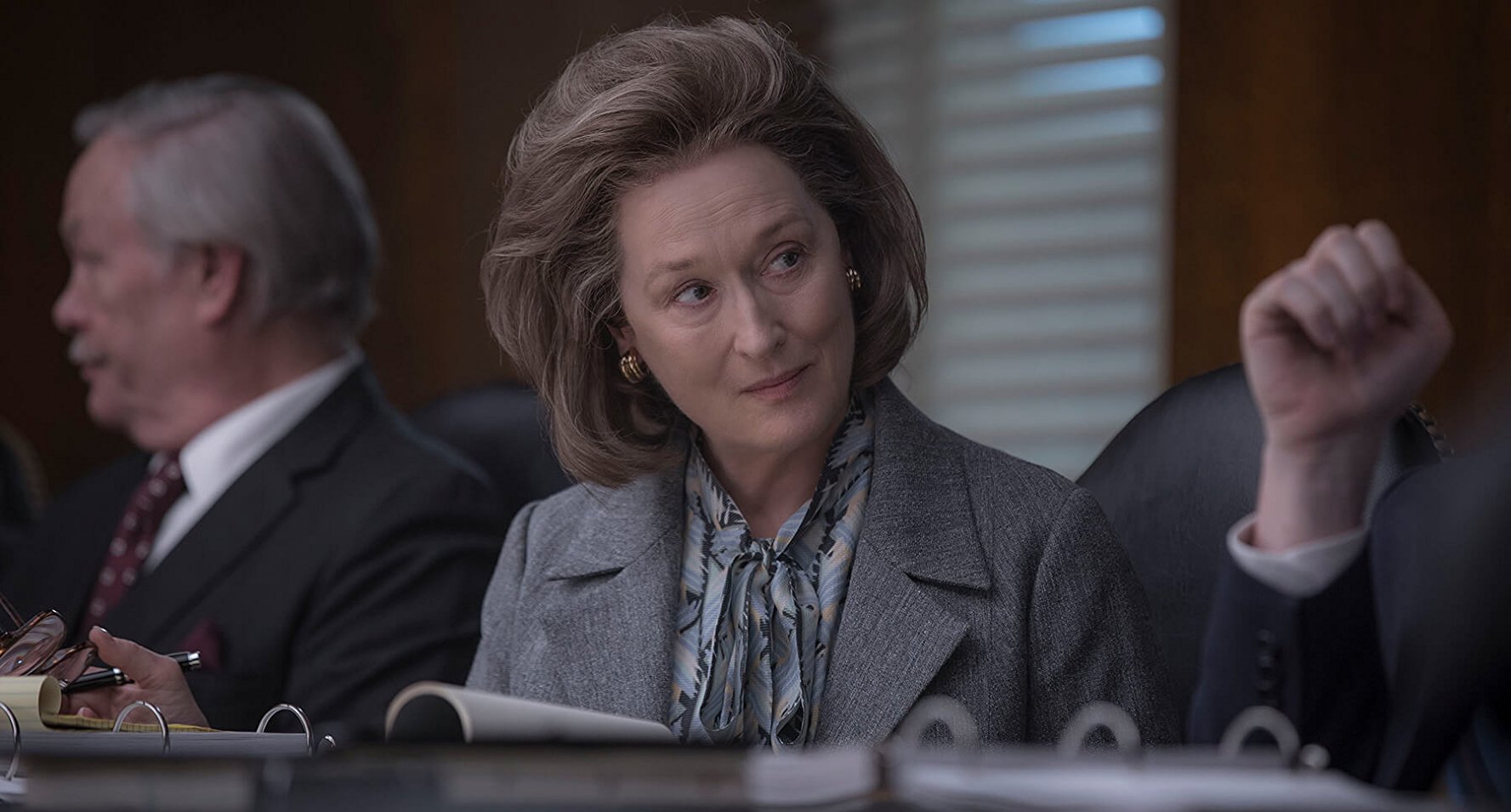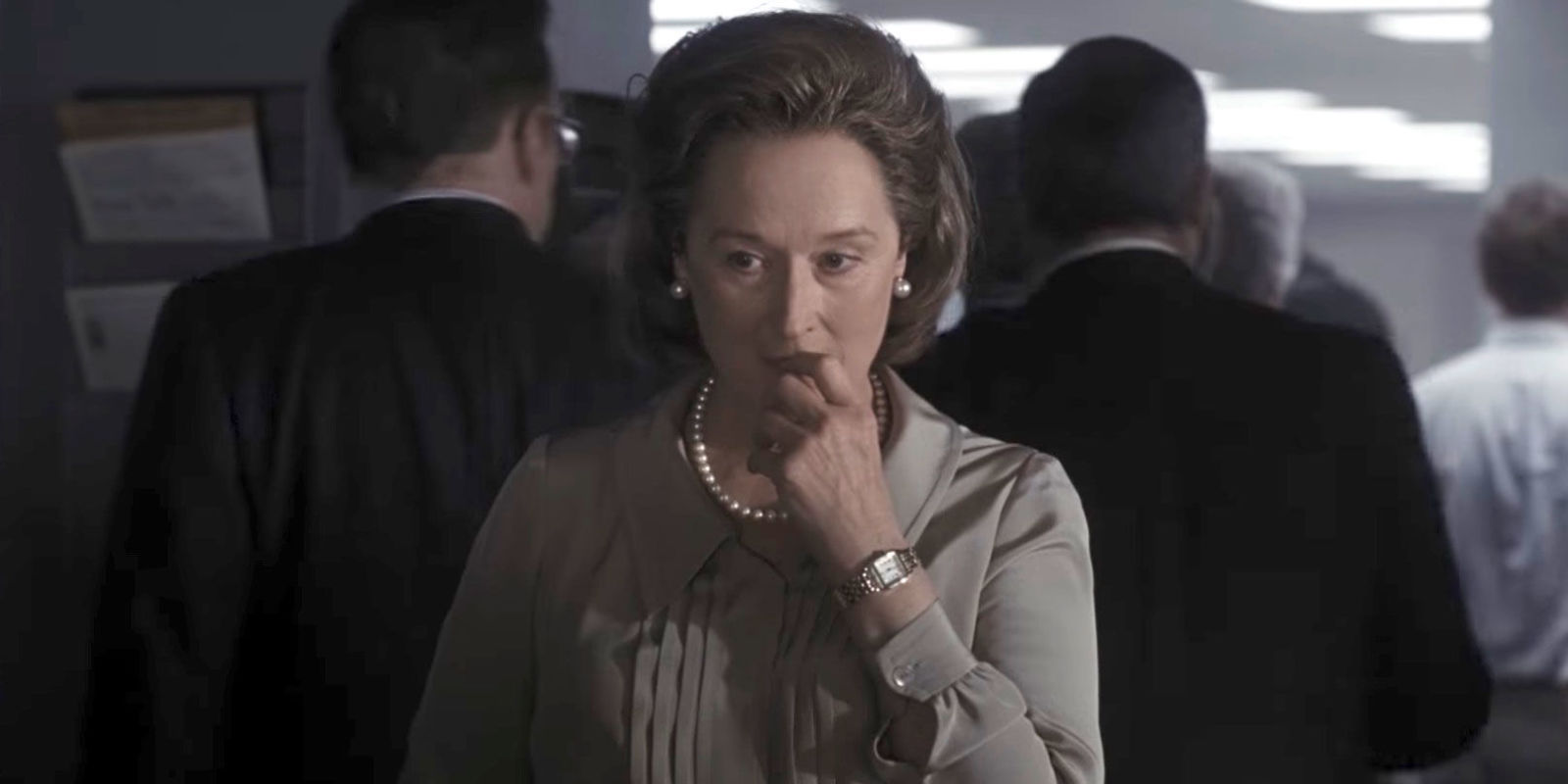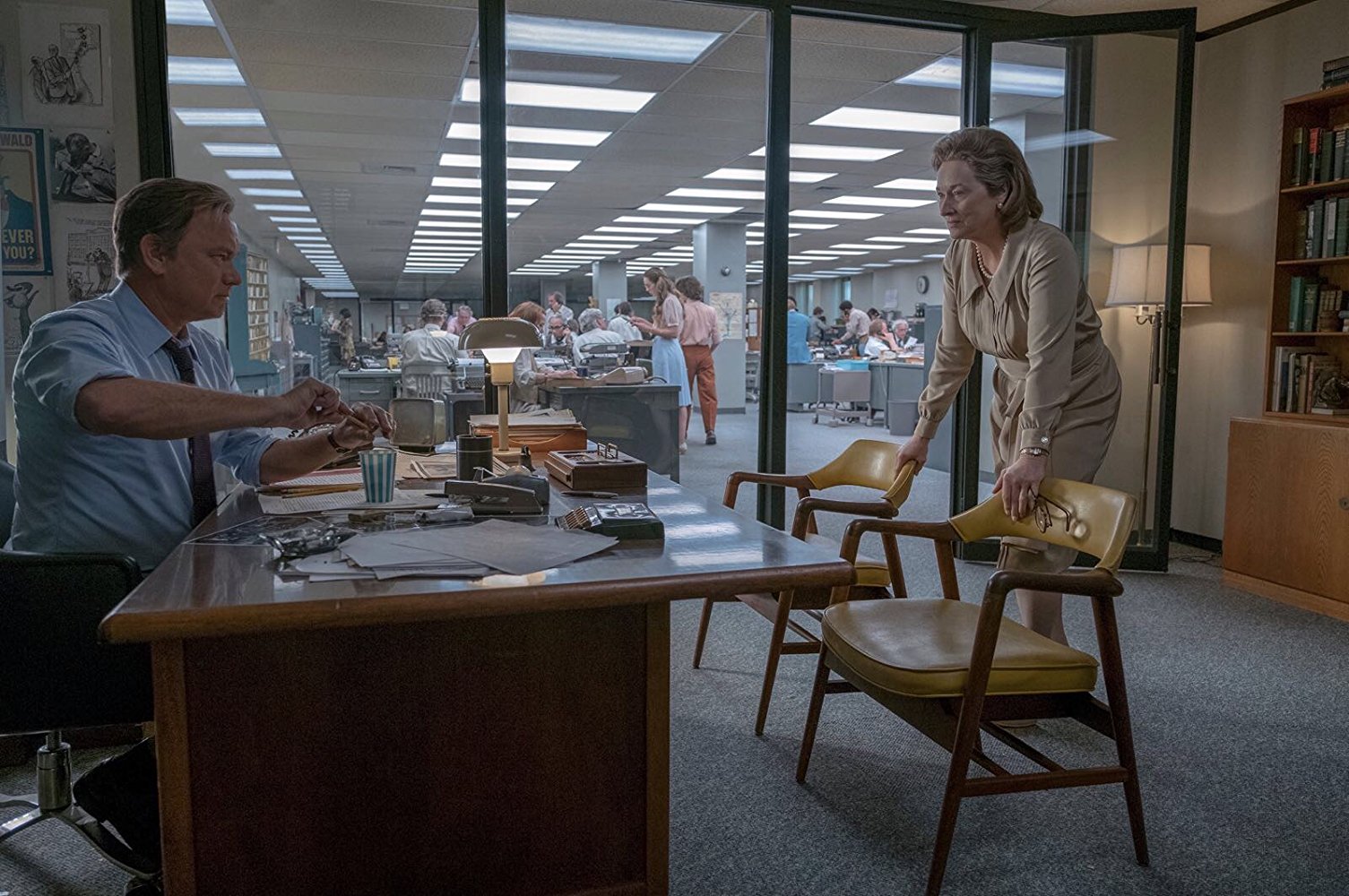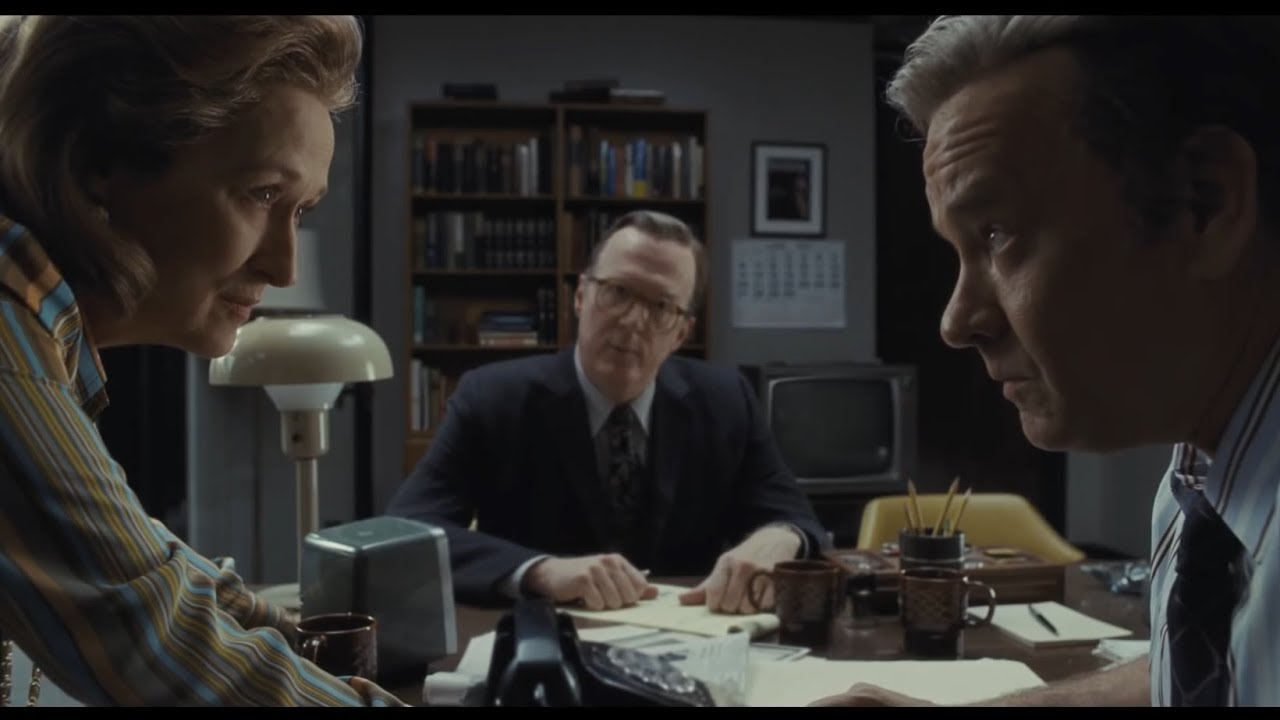How much sentimental Boomer Nostalgia does it take to turn a gripping historical moment into a chore? Steven Spielberg’s The Post, hurriedly rushing onto the pre-fab Oscar dais, asks and answers this question: exactly an hour and 56 minutes worth.
Spielberg is one of cinema’s greatest technicians and, increasingly, one of its dullest storytellers. This is a strange turn of events for a guy who made his considerable name on the strength of meat-and-potatoes narratives, from the elemental Duel on. But the pulpy, wonderstruck director of Jaws, Raiders of the Lost Ark, Close Encounters, and E.T. has left the building. Hell, even the relatively nuanced moral observer of Munich or Catch Me If You Can is nowhere to be found. We are left with high-minded, middlebrow fare, another paean to the inherent decency of the American project presented as guileless as National Dad Tom Hanks’ earnest face, seemingly designed to elicit melancholy, self-contented sighs from a generation who remembers better days. The rest of us seize the opportunity to nap.
 The Post tells, once again, the story of Daniel Ellsberg, The Pentagon Papers, and public and private trials and tribulations of The Washington Post as the outlet went head to head with the Nixon administration. Hanks steps into the growly Ben Bradlee role, doing his best Jason Robards. A monologuing, tic-accented, and coiffured Meryl Streep is Katharine Graham, who came to head up The Post after her husband’s death. A set of character actor all-stars and cable regulars – Sarah Paulson, Bob Odenkirk, Tracy Letts, Bradley Whitford, Alison Brie, David Cross, Jesse Plemons – round out the background, doing precisely what is asked of them to advance a story everyone knows and nothing else.
The Post tells, once again, the story of Daniel Ellsberg, The Pentagon Papers, and public and private trials and tribulations of The Washington Post as the outlet went head to head with the Nixon administration. Hanks steps into the growly Ben Bradlee role, doing his best Jason Robards. A monologuing, tic-accented, and coiffured Meryl Streep is Katharine Graham, who came to head up The Post after her husband’s death. A set of character actor all-stars and cable regulars – Sarah Paulson, Bob Odenkirk, Tracy Letts, Bradley Whitford, Alison Brie, David Cross, Jesse Plemons – round out the background, doing precisely what is asked of them to advance a story everyone knows and nothing else.
 Spielberg is at his best in The Post when he lets the images do the sermonizing for him. The blue-collar materiality of the paper’s production – The Post loves its typesetters, machines, and ink-stained scribes, as noble and unerring as any Gus from The Wire – hint at the discovery and presentation of truth as a collaborative social endeavor. Streep’s isolation in the boy’s club, and her wrestling with legacy as she builds up some glass-ceiling shattering nerve, is conveyed in some striking visual moments. The Post could’ve used a lot more of that.
Spielberg is at his best in The Post when he lets the images do the sermonizing for him. The blue-collar materiality of the paper’s production – The Post loves its typesetters, machines, and ink-stained scribes, as noble and unerring as any Gus from The Wire – hint at the discovery and presentation of truth as a collaborative social endeavor. Streep’s isolation in the boy’s club, and her wrestling with legacy as she builds up some glass-ceiling shattering nerve, is conveyed in some striking visual moments. The Post could’ve used a lot more of that.
Instead, we get monologues and what passes for witty repartee between Graham and Bradlee, utterly without drama. (One scene finds Streep pouring her heart out at such length that it actually comes as a shock when the reverse-shot reminds us she’s been talking to her daughter, who never appears again in the film, for the past several minutes. It verges on a jump-scare in the midst of a teary confessional.) Scenes frequently hinge on phone calls, and not even Steven Spielberg can make someone with a phone to their ear any more exciting than a guy sitting at a typewriter.
The irony here is that The Post was acquired, filmed, and kicked out the door in an urgent 11 months, with one eye on Trump’s White House and the other on L.A.’s Dolby Theater – this, the film insists, is the story our moment desperately needs. The Post is an absolutely committed act of devotion to objective truth and the Fourth Estate, but its lack of anything approaching nuance undermines that sincerity. Its urgency is trapped in amber. It’s a spirited, simplistic defense of an idealism that was much more complicated then and nearly irrelevant now.
 Those complications, and their attendant questions, occasionally threaten to rise to the surface. Do Graham’s socialite friendships with the powerful, or Bradlee’s allegiances to the Kennedys, affect the stories that can be told? What does the development of the Post’s ownership model, or its scoop-heavy ambitions, portend for the kinds of media that would proliferate in the years to come? Is a woman who occupies the most rarefied, whitest, wealthiest echelons of social power really the #MeToo icon the moment demands, a construction The Post goes out of its sappy way to underscore in the cringiest slo-mo shot of the year? Where are all the Black people?
Those complications, and their attendant questions, occasionally threaten to rise to the surface. Do Graham’s socialite friendships with the powerful, or Bradlee’s allegiances to the Kennedys, affect the stories that can be told? What does the development of the Post’s ownership model, or its scoop-heavy ambitions, portend for the kinds of media that would proliferate in the years to come? Is a woman who occupies the most rarefied, whitest, wealthiest echelons of social power really the #MeToo icon the moment demands, a construction The Post goes out of its sappy way to underscore in the cringiest slo-mo shot of the year? Where are all the Black people?
Spielberg and The Post entertain some of these questions, ignore others, and generally tamp down anything that can’t be encapsulated in declarative moments of lifeless uplift. Everyone is fine, everything looks fine, all the edges have been sanded down and the nostalgia custom gift-wrapped. Released with breathless urgency and no shortage of good intentions, The Post will be forgotten moments after exiting the theater. Of course it secured some nominations.

